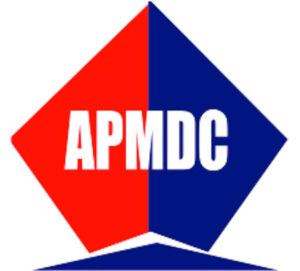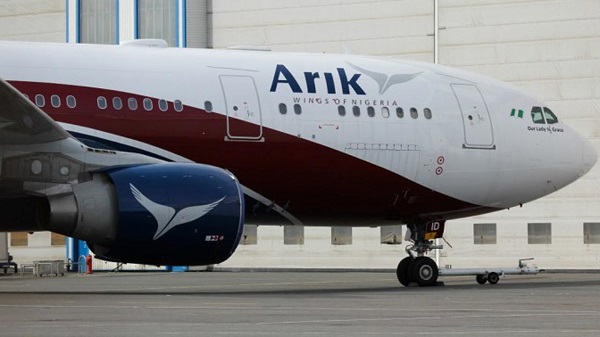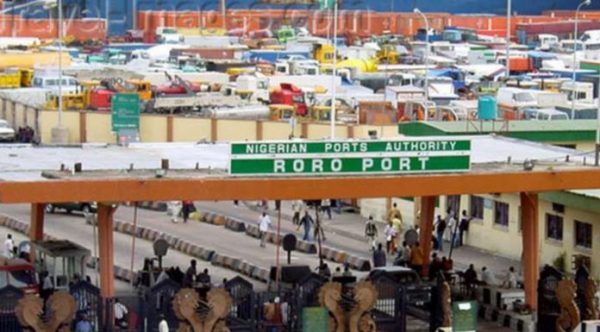We Don’t Have Arbitrary Charges – APMDC
The management of the Associated Port Marine Development Company (APMDC), has denied allegations of arbitrary charges and charging in foreign currency leveled against it by the Nigerian Shippers’ Council (NSC).
Recall that the council had shutdown the company’s terminal over allegations of non-compliance with regulatory directives and other arbitrary charges.
The council further alleged that APMDC had been issued several notices to address infractions ranging from charging in foreign exchange to non-compliance with approved nomenclature of charges such as transport adjustment charges, non-vessel-operating carriers, outright disregard of terms of mediation reached at NSC and unresolved complaints of over one and half years, among others.
However, in a press statement made available to media, APMDC Group Head, Human Resources and Public Affairs, Mr Olise-Emeka Nwachukwu said its charges are not arbitrary but operate one of the most competitive tariffs in the market.
According to the statement signed by Nwachukwu, the company said its charges structure is determined by high cost of delivering groupage containers from discharge ports or off docks to its bonded terminal/warehouse.
He further explained that Transport Adjustment Factor-TAF being a bill back costs, is one example of excessive costs of delivering groupage containers to her bonded warehouse/terminal.
APMDC is an experienced Nigerian-Global Shipping and Logistics player with over 16years of extensive trading knowledge in the Nigerian Maritime.
He said the company’s record of integrity is impeccable, adding that it has contributed a lot to the Nigerian economy.
“Apart from providing employment to Nigerians, the taxes we pay to both local, state and federal governments, through our business units are also revenue channels for the Nigerian economy. These funds which run into billions and trillions of Naira are generated yearly via Customs import duties and taxes as well as levies hence we are major economic contributors. Therefore, we should be applauded instead of being maligned by being called economic saboteur,”he said.
He said the NSC’s action is subjudise as the matter is currently pending at an appellate court.
“It is important to note that NSC shutting down the activities of APMDC, acted in flagrant disregard for the pending case at the Court of Appeal where these contending issues are before the honourable court, “he said.
Speaking on the company charging for services in foreign currency, APMDC boss said the Central Bank of Nigeria (CBN), in 2015 grouped their operation among one of the services that can charge in foreign currency.
He further stated that the charges collected in foreign currency were not for local services.
” With regards to ‘Transhipment Port Dues’, and other charges collected in forex, and NSC’s allegations of APMDC committing financial infractions, there has never been any infraction, as the said charges collected were not for local services rendered. Transhipment operations and its associated costs do not occur at a “Destination Port of Lagos but at a “Mid Transit Port” in the course of the container journey between loading and discharge ports.
“Transhipment port dues as it’s titled, simply defines and makes clear the nature of transaction for those who understand the international shipping business dynamics. Besides, CBN as the official financial and economic regulator of the country has exempted operators in the maritime and aviation sectors where APMDC plays, to make payments and receive payments in foreign currencies. The same circular has been reaffirmed recently as still extant by CBN, hence APMDC has not committed any infractions as alleged, “he explained.
Also speaking, the Deputy Manager, Shipping of APMDC, Rachael Monye said Shippers Council is not interested in operators’ plights and industry’s inherent challenges that drive charges to customers.
She also accused the council of fees imposition without consideration or recourse to high costs of delivering the services.
She said, “we must put out there clearly that the major challenge to all operators, is that NSC tries to fix prices which negates healthy competitiveness amongst players, indeed an action that is noncompliant in itself and also against standard international commercial and business norms.
“To the fact that, NSC imposes tariffs, fixes amounts to charge to customers, on operators without recourse to obvious industry challenges that drive our costs and charge structure leaves very bitter taste in the mouth of industry players and our concern is that this action will discourage investors and will also run businesses to a grind, “she stated.
Monye, further called on the industry regulators to understand that the business of shipping especially the NVOCC is a multiparty and multilateral business involving multiple stakeholders hence must be fair and balanced in their regulatory functions, which we have never denied them. The customers themselves are our own creations, which underpins the more reason to resolve their issues within possible realms and regulators should be objective as well as fair in their judgment.
“These businesses worth hundreds of millions to billions of naira investment are in existence to ameliorate financial burdens for importers and create ease of doing business whilst offering midrange cost effective supply chain solutions to the SMEs but at the same time, the need for returns on investments, sustainability and profitability of these platforms cannot be undermined or played down on a platter of regulations.
“The solutions we are offering is critical and beneficial to both private and public sector businesses especially the Small and Medium Scale Enterprises-SMEs which is the fulcrums of growth in our country’s economy. We believe that the roles we players are pivotal to the emergence, growth and sustainability of the SMEs hence we should be commended and encouraged as we bridge the gap between airfreight and full container imports option of the average businesses entities avoiding high airfreight, full Ocean freight rates, “she said.








